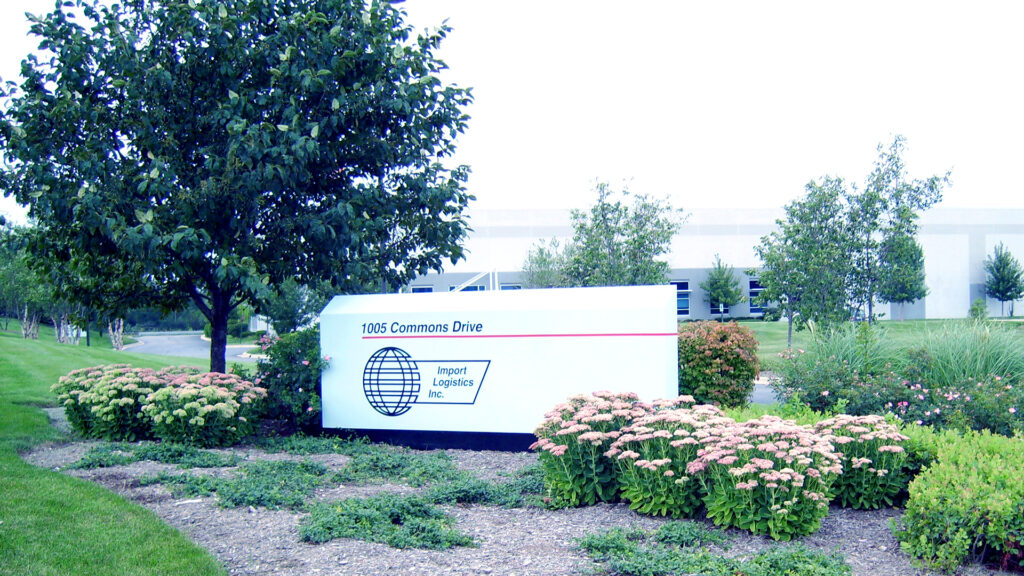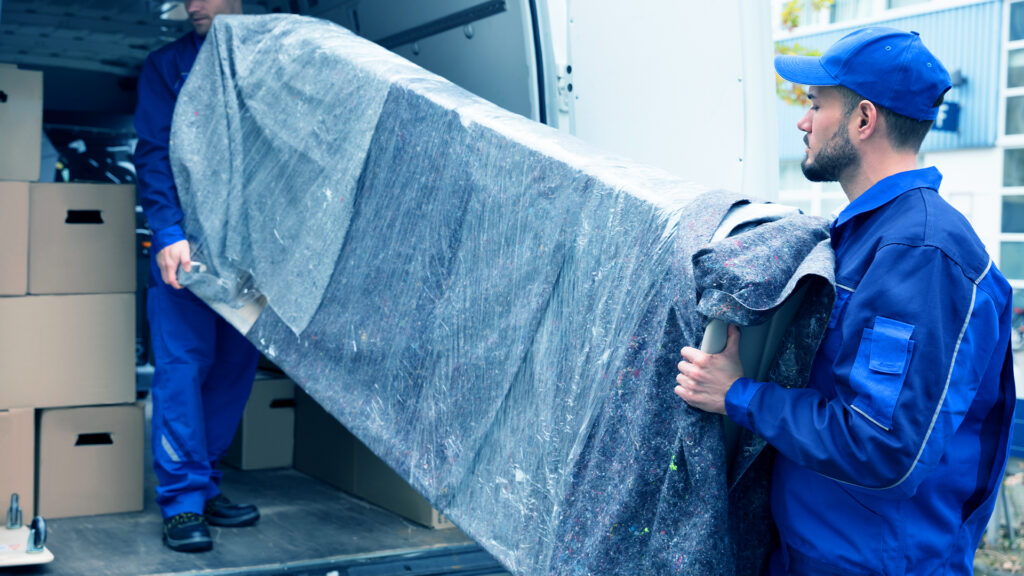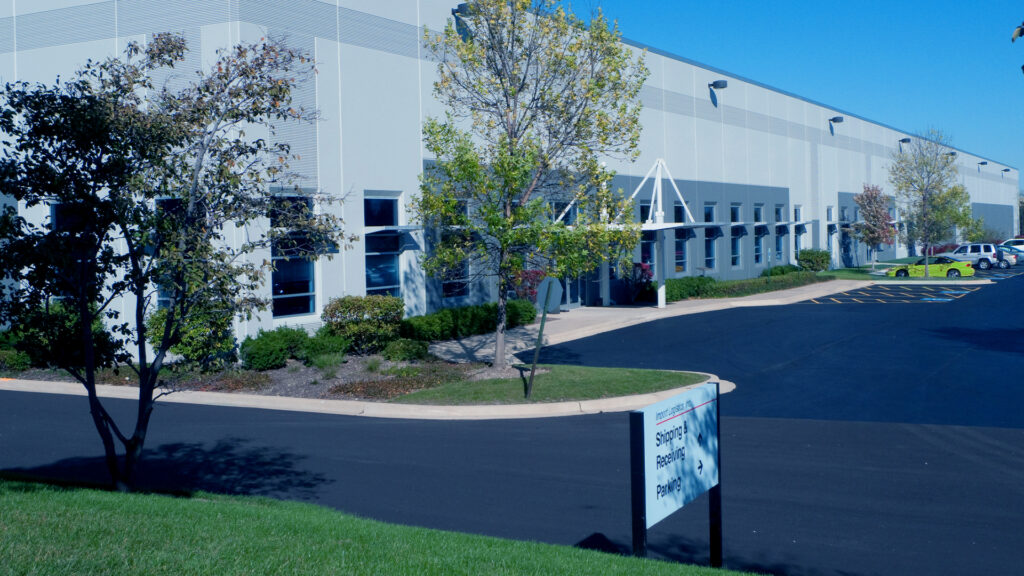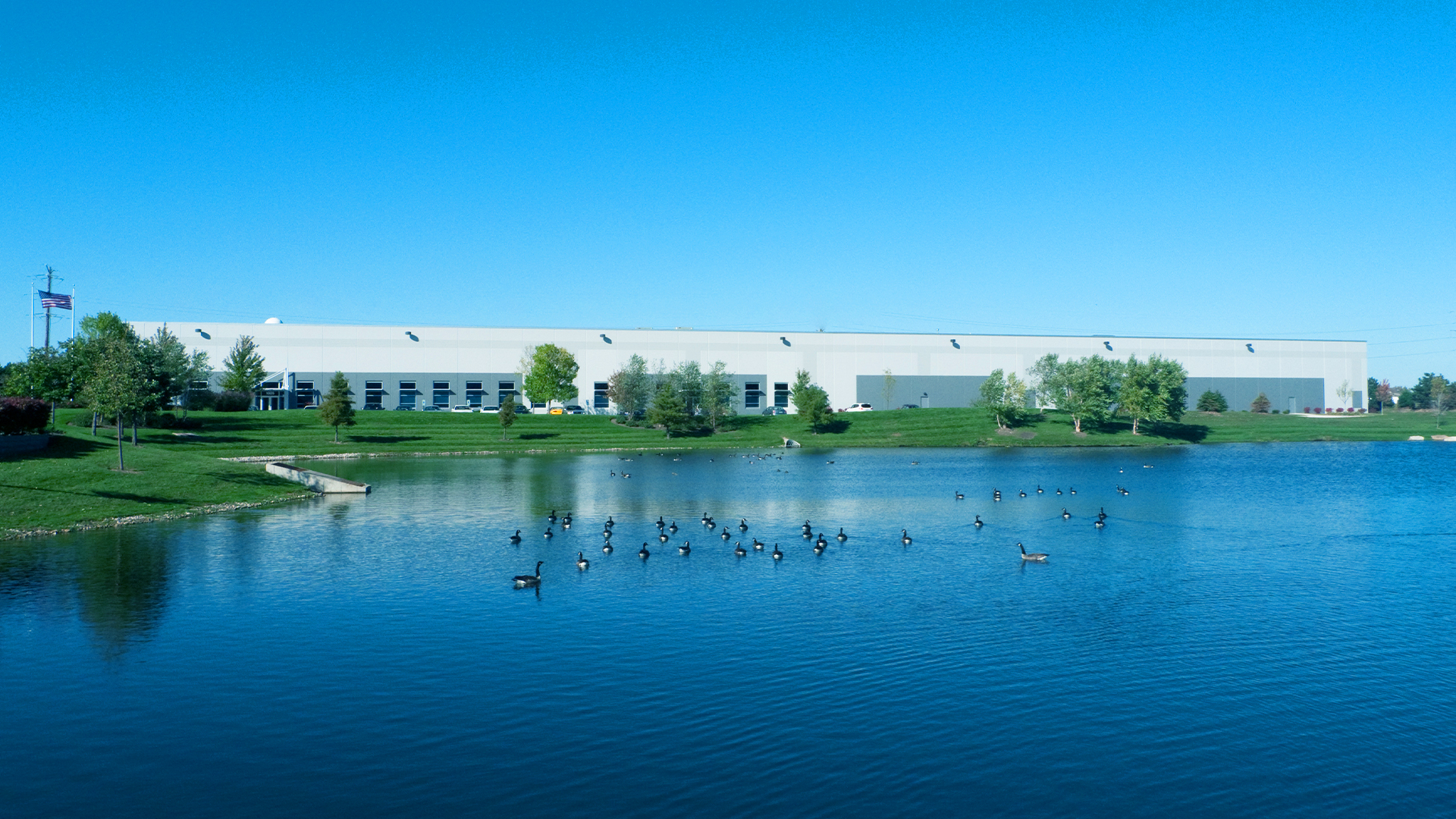AURORA, IL—Local family-owned business Import Logistics moves products to and from countries around the world, ranging from Germany and France to Japan and Myanmar. Mike Swords, Vice President of Sales and Marketing, says that new customers always ask the same question: “Where is Aurora, Illinois?”
As a transportation and logistics company, Import Logistics manages and integrates key services for their clients, including customhouse brokerage, freight forwarding, warehousing/storage and distribution. Simply put, they manage nearly every aspect of the supply chain on behalf of their clients’ businesses—the majority of which are foreign-owned.
While their service is comprehensive, what makes Import Logistics truly unique is the ‘virtual presence’ they offer their international clients: a custom program in which Import Logistics handles nearly every aspect of a company’s U.S. operation. It was this service—combined with their strategic location and adaptability—that enabled this local business to stay strong amid the pandemic.
Evolving from Day 1
To understand the company that Import Logistics is today, you have to go back a half-century.
The story begins in 1971, when future owner and president Colin Hann moved from England to the United States as part of A.E. Engine Components. At the time, A.E. was supplying American businesses like John Deere, Caterpillar and several automotive companies. Two decades later, as A.E. began to move in a new direction, Hann purchased part of the company and founded Import Logistics.
As it happened, Hann founded Import Logistics right as the industry entered a new era. In the coming decades, China would rise as a manufacturing powerhouse, global trade would rapidly accelerate, and ecommerce would emerge as a central pillar of transportation and logistics.
From the very beginning, Import Logistics has always been the kind of company that is constantly evolving—probably because it was founded at a time of sweeping change. That adaptability is engrained in the company’s culture, enabling them to survive major industry shifts and serve their customers’ evolving needs.
You can see the company’s evolution just by looking at the products they move. In their early years, Import Logistics primarily moved industrial and automotive parts, following in the footsteps of their predecessor. But it wasn’t long before they expanded to serve numerous other industries, diversifying their portfolio and shifting their focus to ecommerce. Today, the business moves everything from giant drums of chemicals to backyard badminton sets.
Strategic Location

When international clients inevitably ask, “Where is Aurora, Illinois?”, Mike Swords begins by describing the sheer volume of freight that moves through the Chicagoland region. Today, one fourth of all U.S. freight originates, terminates or passes through the area. That’s approximately $564 billion in goods each year, weighing some 269 million tons. A client from Japan may not be familiar with Aurora, Illinois—but, with those numbers, anyone can see that Aurora is at an epicenter of international trade.
The volume is impressive, but it’s the variety of transportation modes that has elevated DuPage County and the surrounding region to the status of North America’s preeminent international Freight Gateway. Here, critical waterways, interstates, airports and railways all converge, enabling businesses like Import Logistics to reach two-thirds of the world’s population within just 48 hours.
“I don’t think there’s anywhere else in the U.S. with that capability,” Mike says. “Not with the infrastructure and the other advantages our region has to offer.”
Mike says that two of the region’s transportation channels have been particularly important to his company’s success: railways and highways. With numerous railways within a short drive, drayage companies can easily pick-up containers in Joliet, Chicago, or anywhere in the region, and drive them to Import Logistics. There, the containers can be de-vanned and returned to the railyard, often in the same day. That saves time and money for both Import Logistics and their clients. In addition to their close proximity to major railyards, Import Logistics is located within the I-88 Corridor, just three miles from the highway—which is critical for LTL truckers.
While this strategic location has always given Import Logistics a competitive advantage, it was critical to their survival in the early months of the pandemic.
Playing Jazz
Logistics is sometimes compared to orchestral music, with many people and instruments coming together to create a cohesive movement.
Not a bad metaphor. However, in many ways, logistics is less like orchestral music and more like jazz. While you still have the same basic elements of the more-structured genres, jazz is about improvisation. You have to read the room, detect changes, pivot quickly and stay in communication with all the other players. Otherwise, you’ll fall behind.
Like jazz, logistics is deceptively complex, especially when you are moving goods across borders. When you ship your product internationally, you have to consider an entirely new set of factors, like navigating customs, untangling a web of local laws, and wrangling numerous transportation companies literally on the other side of the world. And while you’re dealing with all those nuanced issues, you still have to focus on serving your customers—who happen to live in a different time zone.
Sound like a headache? It really is. And that’s why Import Logistics developed their signature solution: the virtual presence.

With a virtual presence in the U.S., Import Logistics handles virtually every aspect of a client’s U.S. operations, from warehousing and distribution to back-office support. From the time your product arrives in the States to the moment it reaches your customers, Import Logistics ensures that everything goes smoothly.
That means you don’t have to deal with customs—Import Logistics takes care of that. You don’t have to worry about wrangling multiple transportation/storage companies, either. Now, rather than a tangle of organizations and expenses, you have a single, trusted point-of-contact and a single cost.
The service is fully customized. Some clients even elect to have Import Logistics answer the phone as their company. Others have Import Logistics act as their U.S. customer service department—receiving complaints, inquiries and phone orders from buyers.
“It gives our clients an advantage,” Mike says. “Now, they’re not having to call one company for their freight forwarding, another for their customs brokerage, and another to track deliveries.
“It’s all us. As a result, we become more knowledgeable about their products, and we develop those key relationships between the clients and their buyers. It all adds up to a better overall experience.”
COVID Times
When COVID-19 reached the U.S., the American automotive and industrial sectors—originally, the bread and butter of Import Logistics—were hit particularly hard. As demand plummeted, so did shipments. Many clients pay Import Logistics based on a percentage of their overall sales, so the company immediately saw major drops in revenue from clients in these sectors, among others.
But Import Logistics isn’t the business they were in 1990. They no longer depend on the success of one or two industries. Instead, their portfolio is diverse, and that diversity was key during the early months of COVID-19. Even as revenue dropped in sectors like automotive and industrial, it rose in others, like furniture and ecommerce, as consumers adopted to their new work-from-home lifestyle.
In the past, adaptability enabled Import Logistics to survive the transformation of their industry, the rise of the dot-com era, globalization and the 2008 financial collapse. Now, once again, it enabled them to weather disruption.

Location was another key factor. As air travel came to a standstill—and, briefly, oceanic cargo ground to a halt—Import Logistics was able to pivot between the DuPage County region’s many transportation modes, ensuring that their customers’ goods were delivered. When goods couldn’t be shipped by air, they moved to water, train and highway. When cargo ships stopped arriving in port, they shifted to other channels. With access to numerous transportation modes, Import Logistics was always able to move their clients’ products—even at the point of greatest disruption.
Meanwhile, international customers found new value in their U.S. virtual presence. As the situation in the States changed from one day to the next, Import Logistics helped them navigate the volatile market, while keeping them informed with regular updates.
“We were getting so many questions,” Mike says. “How is it there in the US? What’s changed today? Suddenly, we were hearing from customers who don’t normally reach out.”
With their customers facing constant uncertainty, Import Logistics began sending a pair of weekly newsletters: a market report and a COVID-19 update. For the market report, the company’s global logistics manager shares key news and analysis of current market conditions in the U.S. and across the globe. “Sharing that knowledge with our clients is key,” Mike says. “We want to be their source of information, so we can relieve some of their stress.”
Similarly, their weekly COVID-19 updates report on the status of the pandemic, starting from a global angle and narrowing down to a national, regional and local level.
Finally, Mike wraps up each newsletter with some good news.
“I finish each update by announcing that we still haven’t had a reported case of COVID-19 here at Import Logistics, which is a feat in itself,” Mike says.
“All in all, we’ve been extremely fortunate.”
Evolving, Once Again

What’s next for Import Logistics, a business that’s always evolving? More evolution. Over the last three decades, the business has navigated industry upheavals, financial crises and now a global pandemic. Mike attributes their longevity with their willingness to accept change and adapt to new conditions.
That tradition continues today. Even as they navigate the challenges of the pandemic, Import Logistics is investing in new technologies, analyzing their current processes, and testing an entirely new warehouse management system. As many of their customers turn away from traditional sales models to become ecommerce suppliers, Mike says that it’s important for his company to evolve accordingly.
“Things are always changing—that’s how the world works. We just have to accept the change and find new ways to move forward.”
Just 20 miles west of Chicago, DuPage County is strategically located at the heart of the nation’s transportation network—offering access to North America’s largest inland port, three international airports, seven interstates and the nation’s busiest rail gateway. That’s why businesses like Import Logistics choose DuPage. Click/tap here to learn more about our thriving transportation and logistics industry.


